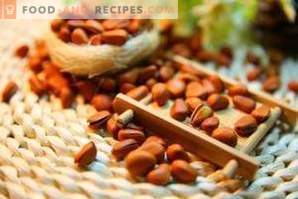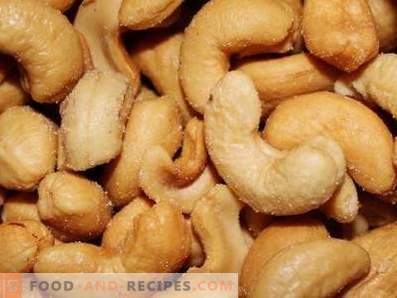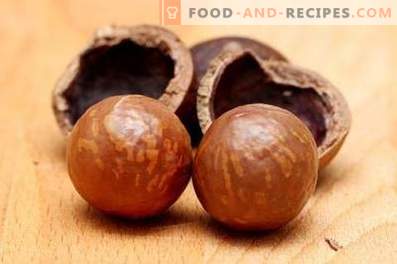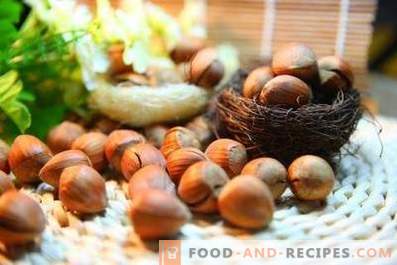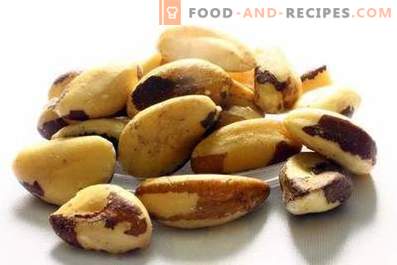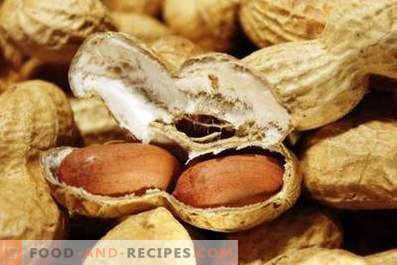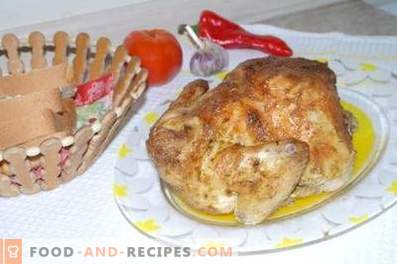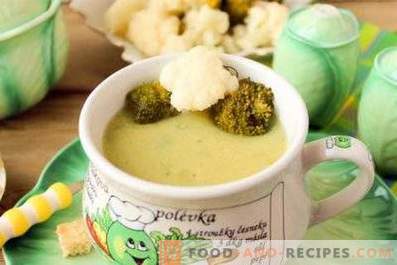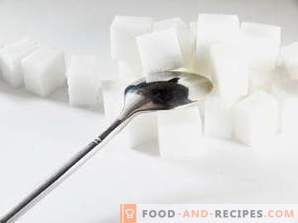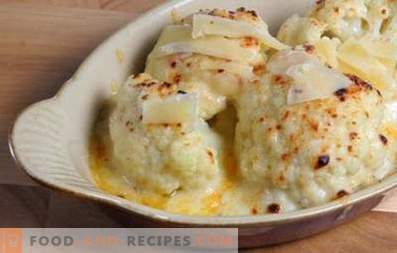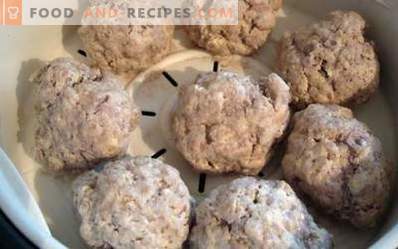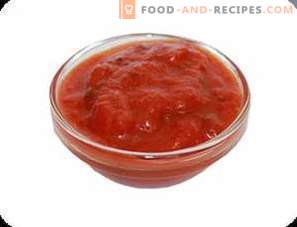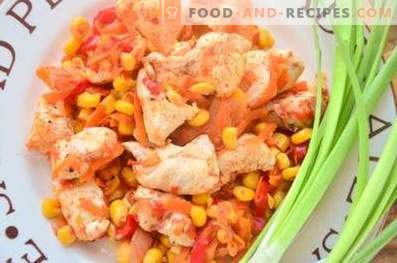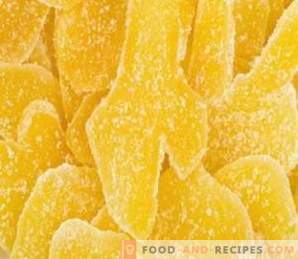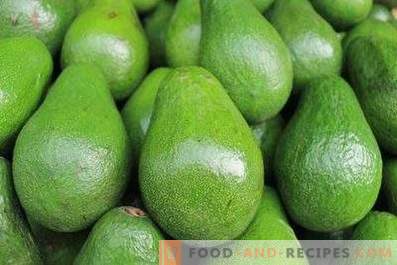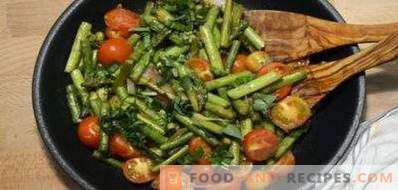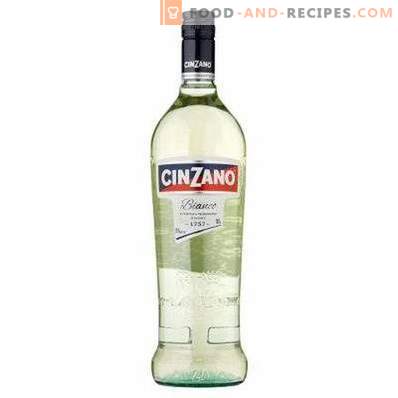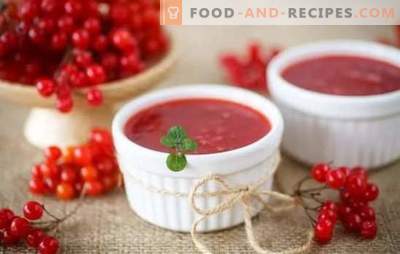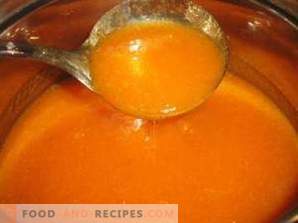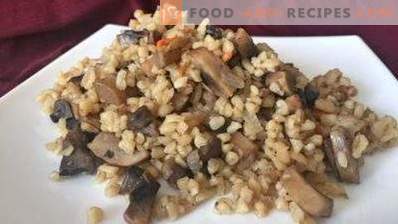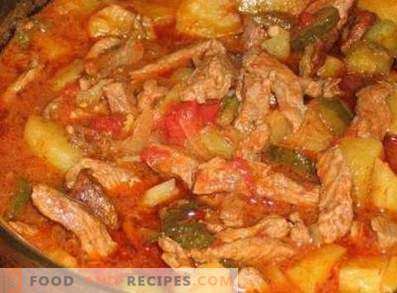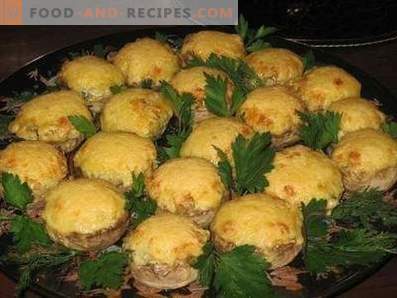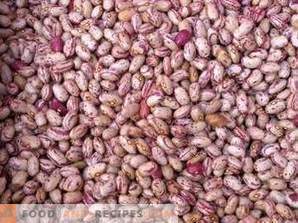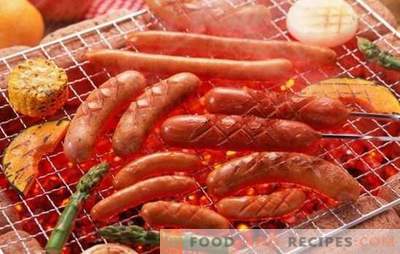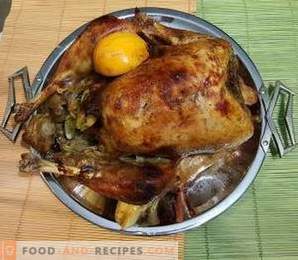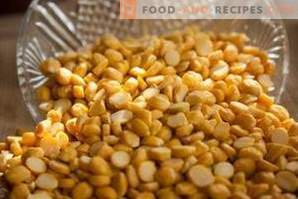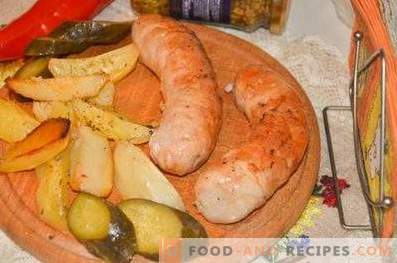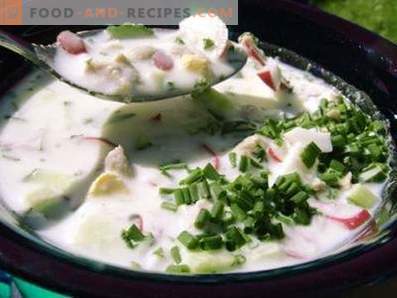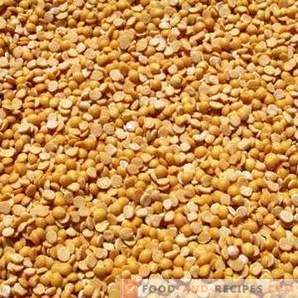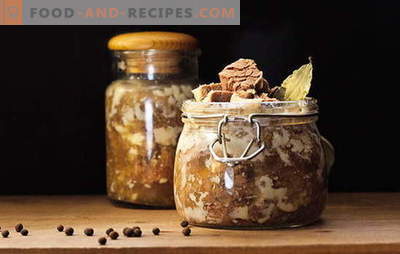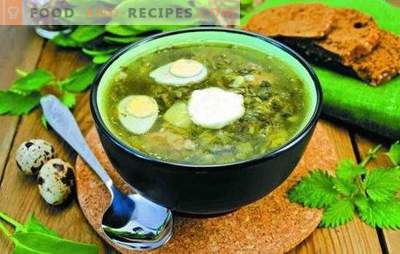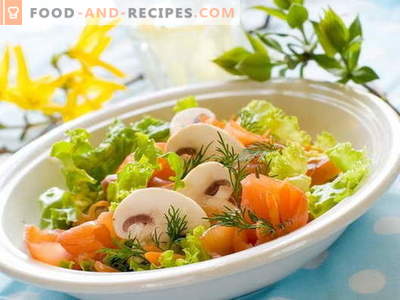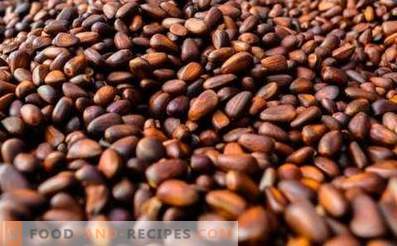
Pine nuts are the edible seeds of Siberian cedar pine (Siberian cedar, Pinus sibirica) and other cedar pines growing in the dark coniferous taiga of Siberia, Mongolia and northern China. In fact, the seeds of these plants are not nuts, but this name is firmly established for them in everyday life, trade and cooking.
Siberian cedar pine is an evergreen tree in height from 18 to 40 meters. The straight stem of the plant is covered with fissured bark of a grayish-brown shade. The tree has a whorled branch. On its shoots grows soft dark green needles, which is further covered with a bluish bloom. The length of the needle can reach 140 mm.
Siberian cedar pine is among the dioecious plants: on each tree you can find both male and female cones. Pollination of ovules, which are in the axils of the covering scales of megastrobiles, occurs with the help of the wind. Usually it takes 14-15 months to fully mature. Ripe cones acquire relatively large sizes (up to 130 mm in length and up to 80 mm in width), purple or brownish tint. Each of them contains from 25 to 150 large dark-brown seeds (up to 10 mm wide and up to 14 mm long) of oval or ovoid shape. The yield of one tree can reach 13 kg per season.
Each seed of the Siberian cedar is a pale yellow or white core, covered with hard shells. The average weight of one nut is 0, 24 g. The seeds of Siberian cedar are eaten raw, used to make cedar oil and flour, cosmetic preparations and traditional medicine.
When buying pine nuts in stores and markets, it is recommended to give preference to unpeeled fruits or kernels in vacuum packaging. You should refuse to purchase seeds that have a rancid, unpleasant smell, covered with mold or bloom. Pine nuts should be stored in a cool, well protected from moisture.
Nutritional value of pine nuts and vitamins in their composition
Nutritional value pine nuts (100 g edible part):
- 13, 659 g of proteins;
- 67, 944 g of fat;
- 12, 989 g of carbohydrates;
- 3,671 g of insoluble dietary fiber;
- 2, 199 g of water;
- 4, 887 g of saturated fatty acids;
- 1, 389 g of starch;
- 3, 584 g of disaccharides, monosaccharides.
Vitamins in pine nuts (per 100 g):
- 0, 984 μg of retinol equivalent (vitamin A);
- 0, 309 mg of pantothenic acid (vitamin B5);
- 4, 374 mg of niacin equivalent (vitamin PP);
- 0, 016 mg of beta-carotene;
- 0, 359 mg of thiamine (vitamin B1);
- 9, 301 mg of tocopherol equivalent, alpha-tocopherol (vitamin E);
- 33, 961 mcg of folate (vitamin B9);
- 54, 006 mcg of phylloquinone (vitamin K);
- 0, 218 mg of riboflavin (vitamin B2);
- 0, 793 mg of ascorbic acid (vitamin C);
- 0.091 mg of pyridoxine (vitamin B6).
Energy value of pine nuts
- Caloric value of pine nuts (100 g) - 672, 947 kcal.
- Caloric value of one pine nut (weighing 0, 24 g) - 1, 615 kcal.
- The energy value of cedar oilcake is 431, 847 kcal.
- Caloric content of cedar flour - 427, 884 kcal.
- Caloric content of cedar oil - 897, 667 kcal.
Trace elements and macronutrients in the composition of pine nuts
Trace elements per 100 g of pine nuts:
- 5, 497 mg of iron;
- 0, 697 mcg of selenium;
- 8, 799 mg of manganese;
- 4, 274 mg of zinc;
- 1322, 941 μg of copper.
Macroelements per 100 g of pine nuts:
- 596, 718 mg of potassium;
- 1, 914 mg of sodium;
- 251, 009 mg of magnesium;
- 574, 816 mg of phosphorus;
- 17, 989 mg of calcium.
Useful properties of pine nuts
- Pine nuts are a rich source of vegetable protein: in order to satisfy about 15% of the body's daily need for this nutrient, it is enough to eat about 100 g of their kernels. In addition, the seed protein of Siberian pine is characterized by a high content of the most scarce amino acids - methionine, lysine and tryptophan.
- Gruel of pounded pine nuts with the addition of honey is ingested with bulbit, which has passed into the chronic stage of pancreatitis, gastric ulcer, gastritis, and other inflammatory diseases of the digestive tract.
- Pine nuts - an effective remedy for beriberi. In Kamchatka, their kernels are used for the prevention of scurvy.
- Substances present in the composition of seeds of Siberian pine have tonic properties and have a positive effect on the work of the immune system. Regular consumption of them in food helps to strengthen the immune system, increase the resistance of the human body to bacterial infections, parasites and viruses.
- Useful compounds present in the composition of pine nuts contribute to the removal from the body of harmful cholesterol and reduce the risk of atherosclerosis. In addition, they have the ability to regulate blood pressure, reducing the unpleasant symptoms of hypertension.
- Regular consumption of pine nuts helps to normalize the level of acidity of gastric juice and cope with the pathologies that arise against the background of its increase. A small handful of cleaned kernels allows you to eliminate the suddenly appeared heartburn.
- Alcoholic tincture from the seeds of Siberian cedar is an effective means of combating the manifestations of gout, articular rheumatism, arthritis and other diseases that occur against the background of a violation of salt metabolism in the body. For its preparation, chopped kernels of nuts (sometimes - along with the shell) are poured into a glass jar and filled with alcohol. The mixture is infused for 8 days, filtered and taken orally three times a day. A single dose is 12 ml.
- Oilcake, which remains after squeezing cedar oil, is a valuable drug that contributes to the normalization and activation of metabolism. It is added to fruit and vegetable salads, confectionery, muesli.
- Regular consumption of pine nuts has a positive effect on the work of the central nervous system, helps to cope with depressive states and neuroses, and minimizes the impact of stressful situations on the body’s work. To achieve a therapeutic effect, the nuclei are taken orally or frayed into a mush and a soothing bath is prepared based on them.
- Pine nuts have a beneficial effect on the work of the male reproductive system, stimulate the work of the sex glands, and contribute to an increase in potency.
- Regular consumption of pine nuts contributes to increased physical endurance.
Useful properties of cedar oil
- Cedar oil is actively used in cosmetology for the manufacture of preparations for skin care. Treatments based on it improve the complexion, tone up, soften, rejuvenate, refresh and moisturize the skin, increase their elasticity and firmness, contribute to the exfoliation of their upper stratum corneum. Siberian cedar seed oil is often used as a natural remedy to remove decorative cosmetics and to protect the skin from exposure to ultraviolet radiation.
- Hair masks, prepared on the basis of cedar oil, help to quickly and effectively get rid of dandruff. Along with this, they actively nourish the hair, give it a beautiful, healthy glow, prevent the development of alopecia.
- Cedar oil helps to get rid of redness, itching, burning and swelling in allergies (the affected area is wiped with a medicine).
- Oil squeezed from Siberian cedar nuts is used as an expectorant for colds and diseases of the upper respiratory tract.
- Pine nut oil dilutes blood, prevents blood clots, increases the strength and elasticity of blood vessels, lowers the concentration of cholesterol in the blood, and significantly reduces the risk of developing strokes, heart attacks, atherosclerosis, angina and other cardiac pathologies.
- Cedar oil is actively used in aromatherapy (including as a basis for other aromatic oils).
- Oil squeezed from Siberian cedar seeds has bactericidal and wound-healing properties. In folk medicine, it is used for the treatment of skin lesions with dermatological diseases.
- Cedar oil is used for grinding the affected areas for arthritis, articular rheumatism, gout.
- Regular consumption of oil squeezed from Siberian cedar seeds helps to reduce the influence of adverse factors on the human body working in hazardous industries or living in a region with an unfavorable environmental situation.
Useful properties of the pine nuts shell
- The shell of pine nuts is used in the alcohol industry for the preparation of tinctures and balms.
- Infusion made from Siberian pine seed shell has anti-inflammatory, astringent and analgesic properties.
- Folk healers claim that regular use of the tincture of Siberian cedar nutshell increases hearing acuity.
- An infusion prepared on the basis of cedar pine seed shell has a positive effect on the functioning of the liver and kidneys. To obtain the desired result, the drug is taken up to 4 times a day, a single dose - 100 ml.
- A rich decoction of cedar pine nuts shell is used externally as a means for depilation.
- Regular intake of an infusion prepared on the basis of pine nuts shell helps to increase the overall tone of the body.
- Saturated infusion of Siberian pine nut shell is used as an external remedy for rubbing with body aches, colds, rheumatic and joint pains, gout.
- Infusion of the nut shell of Siberian cedar helps to cope with the majority of violations in the gastrointestinal tract. In folk medicine, it is used as a means of combating indigestion, diarrhea.
- The rich decoction of the Siberian cedar nutshell has a beneficial effect on the functioning of the hemopoietic system. Persons suffering from blood disorders are recommended to drink 1–1.5 cups of this drink daily.
- Substances present in the composition of cedar nutshell decoction promote the excretion of toxins, poisons, excess cholesterol, salts.
- Warm baths based on decoction of Siberian cedar nutshell help alleviate the condition of people suffering from arthritis, rheumatism, lumbago, and gout.
- Gadgets and compresses based on decoction of the seeds of Siberian pine shells help to cope with the manifestations of lichen, eczema, pustular formations and other dermatological diseases. In addition, the tool is used to accelerate the regeneration processes for burns.
- A saturated decoction of the shell of Siberian cedar nuts is used for rinsing the mouth during stomatitis and other dental pathologies.
- In cosmetology, a decoction of the shell is used to dye hair in a soft chestnut color.
Contraindications and harm of pine nuts
- Pine nuts are a fairly common allergen. Abuse of this product can provoke a wide variety of allergic reactions (up to anaphylactic shock). For this reason, individuals who have an increased tendency to develop hypersensitivity reactions should significantly limit their consumption. People who have been diagnosed with Siberian cedar seeds should be completely excluded from their menu.
- The use of spoiled pine nuts (rancid, bloody, affected by fungal microflora) can affect the ability to recognize taste sensations. In this case, taste disorders may persist for several days or even weeks.
- Pine nuts - high-calorie product with a high fat content. That is why people suffering from obesity or wanting to lose some weight, should significantly limit their consumption.
